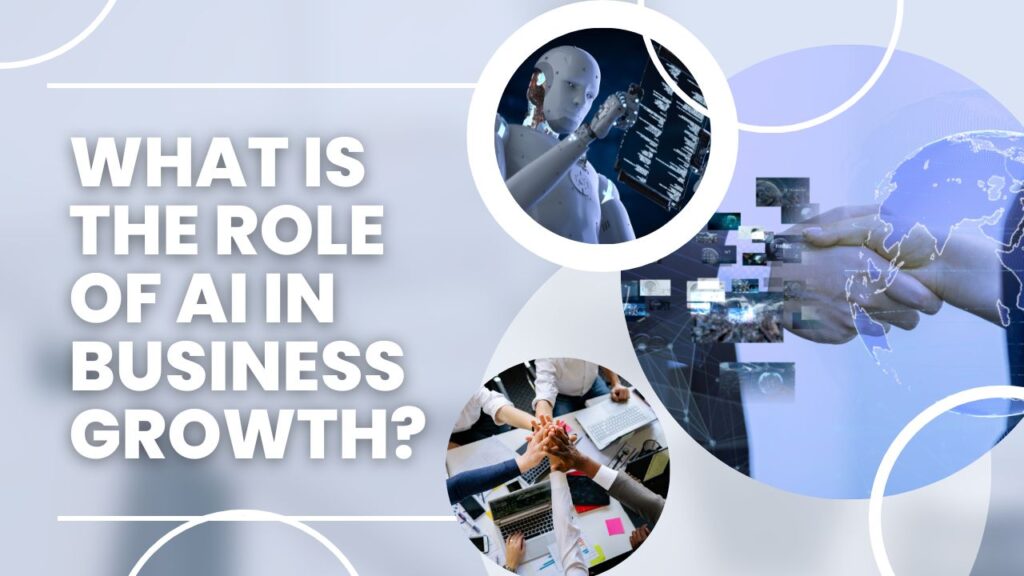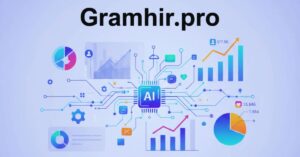You can’t deny that every businessman wants to grow their business to its full potential. But unfortunately, this doesn’t happen as easily as it sounds.
Why?
Because a business’s growth is not just about the sales it makes, or the number of people it hires or serves. What actually fuels growth is how wisely it plans, how smartly it decides, how it deals with crisis, and how it executes those decisions with precision.
Honestly, this is exactly where most businesses struggle.
They know what they want to achieve but don’t know how. Like they expand but lose focus, collect data but miss insights, automate but lose connection. Growth starts slowing, not because of lack of effort, but because of scattered direction.
Sounds familiar, right?
So, if you want to effectively avoid falling for such growth traps, you have to shift to automation and make AI a part of your core strategy.
Now you must be thinking—how does it help in business growth? To learn this, just keep scrolling.
Role of AI in Business Growth
Here is a quick breakdown of how AI plays a major role in accelerating and sustaining business growth.
1. Turns Data into Decisions
Businesses hire teams to collect large amounts of data without even figuring out how to exactly and effectively use it.
A common mistake that most businesses make is they track random numbers—such as page views or likes—without knowing which data actually leads to sales. This creates confusion and can negatively impact the traffic and sales.
So, to help them avoid such chaos and properly organize their data, AI steps in. It doesn’t just store information. Instead, it finds patterns in customer behavior, buying trends, and sales cycles.
Artificial intelligence organizes data into useful insights. It sorts the traffic into customer churn predictors or sales forecasts. Therefore, it surely helps you gather valuable answers like “What causes customers to leave?” or “Which product sells better during holidays?” In short, it answers all those questions that you need to learn to boost your business’s growth using AI.
2. Speeds Up Scaling Without Losing Quality
AI helps businesses grow fast without lowering their standards. As demand increases, businesses often rush, compromise on service, or burn out their teams. But still, they fail to handle the pressure.
However, that’s not the case with AI. AI can easily take over repetitive loads of work and can repeat the same tasks thousands of times with the same accuracy, consistency, and precision.
But there is a little misconception. Many bloggers take AI as a time-saver, not a growth enabler.
However, the reality is, AI is actually designed to help companies scale operations—such as customer service, order handling, or onboarding—without lowering customer satisfaction. Thus, this way it indeed helps them maintain their quality or even improve it despite the increased sales or website traffic.
In short, Artificial intelligence allows you to serve more people, faster, and better—a core requirement for business growth. Without it, many growing businesses hit a quality wall and lose momentum. AI ensures you scale with control, not chaos.
3. Reduces Cost Leaks That Limit Growth
One of the biggest barriers to business growth is hidden spending.
Confused, right?
Let me explain.
So, along with the visible expenses, businesses also have to face inefficient processes, slow systems, or poor decisions, which honestly consume a lot of their cost.
However, AI can effectively plug these cost leaks before they slow down progress. It helps you effectively protect your profit margin so you can save and reinvest the extra funds into the growth areas, such as product development or market expansion.
But how?
AI is trained to accurately predict maintenance, detect fraud, and optimize the supply chains to ensure a streamlined operational pattern. Therefore, you can actively use it to detect where exactly your resources were being wasted and how you can fix or improve those areas.
Sometimes, small fixes add up to large savings.
4. Accelerates Innovation and Competitive Advantage
AI has made the innovation process much faster and strategic. Like, rather than waiting for months to conclude the results of an experiment, you can use AI to simulate it and forecast results, risks, and opportunities in days or sometimes minutes.
Honestly, this speed indeed gives companies a serious edge over slower competitors.
If you know that innovation is never just about creativity. It’s about execution and timing. Thus, AI helps shorten the gap between presenting an idea and then measuring its results.
For instance, take customer reviews as an example. AI tools can suggest improvement areas using just a few customer reviews and feedback.
And guess what?
It always helps you improve your product strategy.
Similarly, it can also be used to study market trends and identify what’s missing. Thus, it indeed helps companies launch better products, quicker. And that directly fuels business growth.
That’s how real growth happens—not just from doing more, but doing smarter, faster, and first. In short, AI gives businesses the speed and accuracy to lead, not follow.
Conclusion
AI isn’t a trend—it’s becoming a core part of how smart businesses grow, adapt, and compete. Those who treat it like a quick fix will fall behind. Growth doesn’t come from using more tools. It comes from using the right ones with purpose. AI rewards businesses that stay curious, keep learning, and build systems that improve over time. If you aim to grow, don’t just follow AI—train it to follow your goals. That’s how you move from automation to acceleration.
FAQs (Frequently Asked Questions)
How Does AI Affect Business Growth?
AI boosts business growth by improving decision-making, reducing costs, enhancing customer experience, and helping businesses scale faster without losing quality.
What is the Role of AI in Future Business?
AI will play a key role in automating complex tasks. It predicts trends, personalizes customer experiences, and drives smarter innovation for long-term growth.
How Does AI Improve Business Efficiency?
AI can efficiently handle repetitive tasks, streamline operations, cut manual errors, and allow teams to focus on high-value work.
Read More: Disadvantages of AI in Education: What Students and Teachers Need to Know





